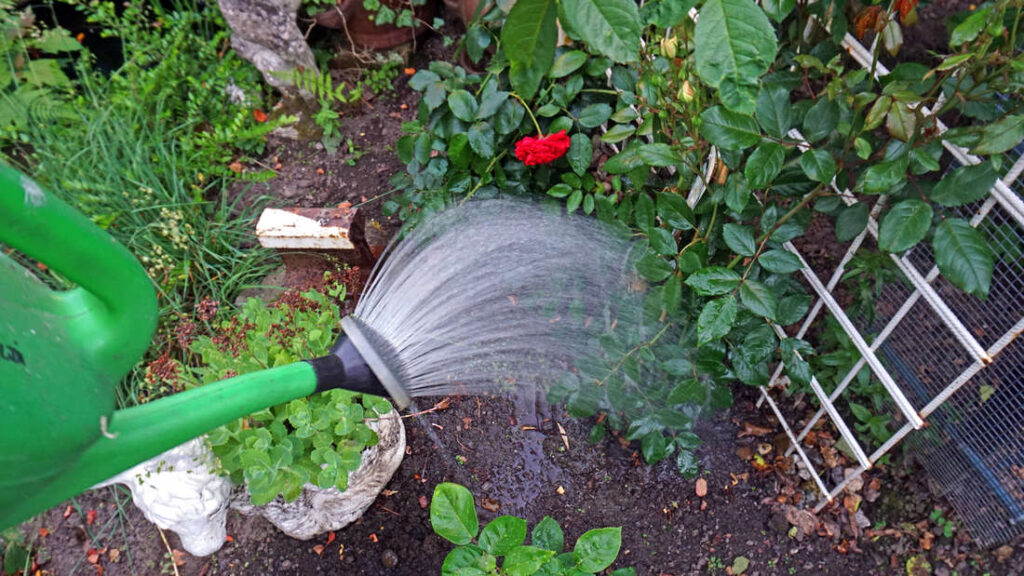Urine is a homemade cheap fertilizer that ornamental and vegetable plants such as roses, hydrangeas or potatoes reward with vigorous growth.
Fertilizing the roses in your garden with your own urine sounds a bit unappetizing at first. However, the natural substance has many nutrients to offer that can keep up with other organic fertilizers.
Urine as fertilizer makes roses grow stronger
That you can fertilize tomatoes with home remedies like coffee grounds is accepted by most, but with human urine? Yet there are some good reasons to use urine as a fertilizer: It contains important nutrients such as nitrogen, potassium and phosphorus that promote plant growth and are usually found in synthetic fertilizers. Nitrogen is even used in cosmetics in the form of urea. And urine is sustainable: we can’t stop producing it, so why shouldn’t it go where it’s useful?
Urine is excellent as a fertilizer, especially for highly productive plants; for example, roses, cabbage plants, potatoes, tomatoes and cucumbers thank us with vigorous growth. But also peonies, hydrangeas, rhododendrons, geraniums or petunias are happy about the natural nutrients. However, plants that store nitrate would have even higher nitrate levels with the urine and should therefore not be watered with it. These include lettuce, spinach and arugula.
Urine as fertilizer: Use diluted
Who overcomes the inner abhorrence, gets an inexpensive effective fertilizer, but should note a few things in the process:
You should not fertilize with urine if you take medication or are a smoker.
The urine must be diluted with water before you apply it (at least in a ratio of 1:10, weakly feeding plants in a ratio of 1:20). Apply the urine directly to the soil, not as a spray or to the leaves.
Measure the pH of the urine beforehand: It often varies between acidic and basic, but plants have different requirements.
The World Health Organization (WHO) advises: wait at least a month after fertilizing vegetables and fruits before harvesting your plants, as urine may contain germs.
Use rubber gloves or wash your hands after handling the urine.
However, urine also has one disadvantage: since the exact nutrient composition of urine is unknown, unlike purchased fertilizer, plants cannot be fertilized specifically for their needs.
Collect your urine in a sealable and airtight container. To combat the odor, you can add some vinegar or citric acid to the container before storing the urine inside. However, fresh, diluted urine doesn’t actually smell. The urine thing is too gross for you? Then you can switch to other natural fertilizers like rhubarb leaves.


